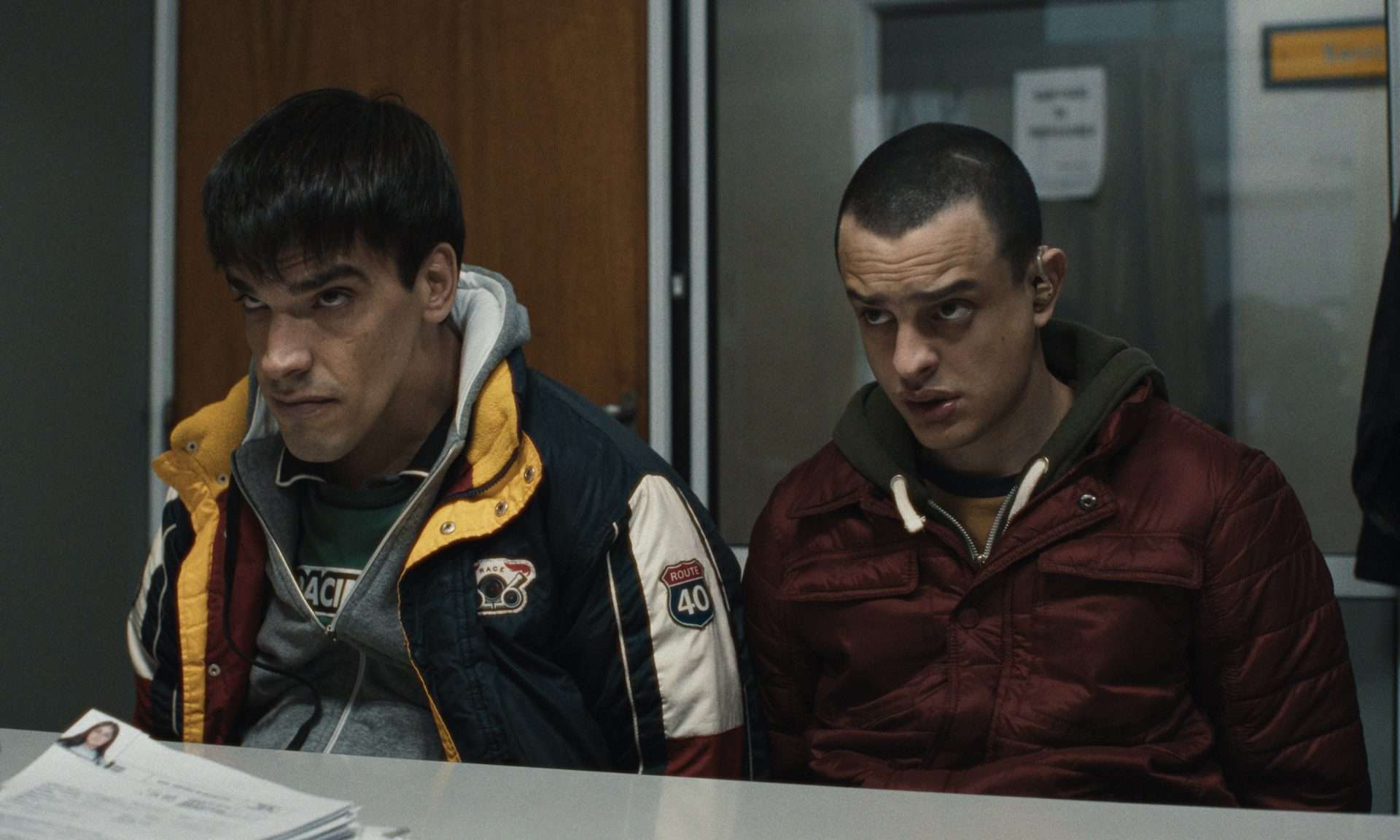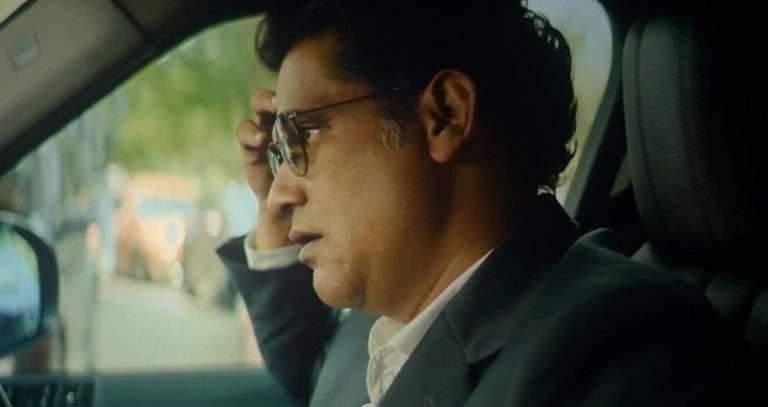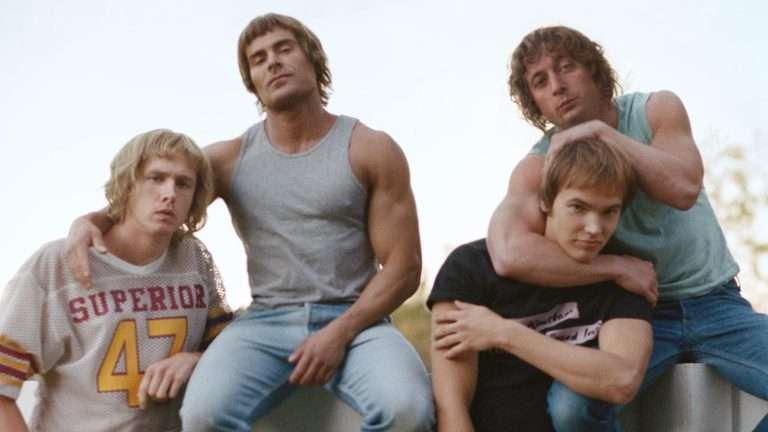In Federico Luis’ Simon of the Mountain, characters mine happiness, or at least something that resembles it, from unexpected circumstances. It’s a vision of youth who, in the heady flush of their age, may make a series of reckless choices but only so much to wrangle for a burst of spirited drive. The twenty-one-year-old protagonist (Lorenzo Ferro) is a drifter. He looks for comfort and approval of his existence in ways one wouldn’t conventionally imagine.
The screenplay, credited to a team of three, including Tomas Murphy, Federico Luis Tachella, and Agustin Toscano, is packed with daring, subversive decisions. The film is unafraid of bold, disconcerting plunges into the emotional volatility of its protagonist. Crucially, the film never shies away from uncomfortable, fuzzy, terribly thorny questions around the remaking of one’s self in a quest for coherent signification. It is among the group of disabled teenagers he finds an anchoring. This makes for one of the most startling reconfigurations of the way we approach the matrix of identity and belonging.
Simon may be making deeply questionable choices, but Federico Luis refrains from casting any judgment. The absence of a hard, stony stare from the makers ensures Simon registers his presence and motivations from a space of curiosity and desperation. In his wandering, restless gaze, we sense an angst-fuelled search for people and spaces that can make him feel more moored, more connected.
For him, home is choppy waters. It isn’t where he can be at ease and open up. The tension between him and his mother is destabilizing. It undercuts the film’s central individual conflict. He denies her any chance of looking into his soul, which he would rather shuck out of view. He is hurting but wouldn’t allow her to understand what’s bothering her. The disconnect has grown so steeply that he barely shares anything with her, reserving instead a secret identity through which he can explore alternative means of finding happiness and a space of community.

Simon’s loneliness seeps through the film, sharpened to great effect in Lorenzo Ferro’s wholly immersive performance. Simon is someone who can absorb and pick up cues from whatever surrounding him that interests him. Ferro brings a definiteness to his curious, eager glances. The entire film rests on his finely tuned performance. Simon is also performing the mannerisms of a disabled person. This could have veered into grossly problematic terrain; however, Ferro doesn’t amp up a sense of spectacle to the act. Simon is intently imitative of his friend, Pehuen, who teaches him the corporeal enactment of disability. It is he to whom Simon keeps turning for validation before he tries for larger affirmation of his physically concerted show since his mental plight may not translate so convincingly.
Simon seeks a sense of belonging. But he is also withdrawn, struggling to reinforce his presence even if he wishes for an intimate connection. There’s a tinge of tragedy to his searching, grasping attempts for tenderness, yet Luis doesn’t sentimentalize or needlessly dramatize the means Simon resorts to. Simon of the Mountain is a compellingly unusual, bracing excursion into the messy inroads where identity meets desires that may not always be instantly agreeable. He refuses to explain himself to his mother. When he does choose to confront her, asserting he hasn’t changed, but it is she over whom a certain sadness has appeared, it is a devastating admission. The screenplay, filled with an unshowy, shrewd spareness, doesn’t exegetically treat the mother-son relationship.
There are no melodramatic flourishes nor a heavily padded backstory rife with misery. Things between them are rough and communication a constant tightrope. The film holds back from divulging details about Simon’s father but leaves us with enough to gauge that Simon hasn’t warmed up at all to his mother’s new boyfriend. He has given them a house and Simon a job. Simon has no inclination toward the job, drawling through it. But the sense of security may have made his mother more beholden to holding onto the relationship. That Simon doesn’t seem remotely appreciative and downright resistant is a bone of contention. Therefore, he is always longing for an escape from a house that, to him, holds no connotations of a home.
Simon of the Mountain is intimately attuned to the specifics of its protagonist. His yearning to be understood and embraced may be geared to a provocative outlet. A disability certificate that’d authenticate his physical posturing plays a pivotal role. But the film is also abundantly allusive about how Simon is plagued by mental doldrums. He is persistently observing and soaking in the behavior of others, hoping to enhance his journey of approaching someone he’d like to talk to. The beauty of the film lies in the patience, inquisitiveness, and respectfulness it accords this journey while locating an internal balance of ambiguity and clear-headedness.



![November [2017]: Fantasia Film Festival Review](https://79468c92.delivery.rocketcdn.me/wp-content/uploads/2017/08/November_1-768x513.jpg)



![A Perfect Day for Caribou [2022]: ‘Locarno’ Review – An Oddly Touching Drama with an Interesting Mix of Dry Humor, Absurdism, and Melancholy](https://79468c92.delivery.rocketcdn.me/wp-content/uploads/2022/08/A-Perfect-Day-for-Caribou-2022-768x576.jpg)
